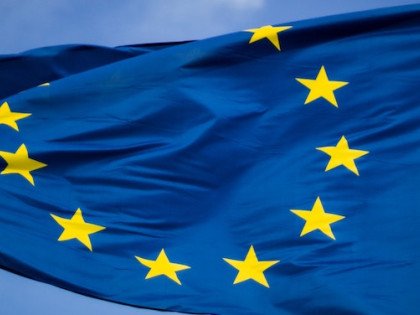As New Zealand’s Ministry of Health prepares to present at the Ninth Session of the Conference of the Parties (COP9) to the World Health Organisation's Framework Convention on Tobacco Control (WHO-FCTC) at The Hague, in the Netherlands, this November, AVCA has written to Associate Health Minister, Jenny Salesa, calling for New Zealand’s position to support current global scientific evidence instead.
"We sincerely urge your delegates to the COP9 to uphold 'right to health' and the implementation of tobacco harm reduction based on factual scientific evidence, as the key strategy for tobacco control addressing the existing gaps," AVCA stated.
Director of AVCA, Nancy Loucas, says consumers have been effectively excluded by WHO-FCTC so it is entirely up to the Ministry of Health to represent the interests of the New Zealand public: "We need you to represent our interests based on pragmatic decisions based on current scientific evidence and verified information on the benefits of the reduced risk products.”
"There are numerous scientific studies and statistical evidence reports that prove the harms of these products are no more than five percent of the harms of combustible tobacco. Nicotine is no more addictive than caffeine, and hundreds of thousands of smokers worldwide have been successful switching off combustible tobacco using ENDS (electronic nicotine delivery systems), HTPs (heated tobacco products) as well as snus," AVCA added.
Ms Loucas says despite such evidence, the WHO-FCTC continues to issue information, reports and guidance that contains several inaccuracies regarding e-cigarettes. It insists that ENDS and smokeless alternatives do not help smokers quit smoking; are more harmful than combustible tobacco; and that nicotine is equivalent to heroin in terms of addictiveness.
She believes the WHO’s position is being influenced by vested interests that provide funds to the organisation. The WHO Global Report on the Tobacco Epidemic 2019 and the WHO Q&A detail on E-cigarettes were written with and funded by individuals who have a vested financial interest in pharmaceutical nicotine replacement therapies in development, she says.
"This vested interest has coloured the information in order to serve the political and financial interests of Bloomberg Philanthropies and the Gates Foundation who provide nearly half of all the funding for the WHO-FCTC.”
"The WHO is lying to you to protect their own financial interests and keep their private donors happy. They are not objective. They are not focused on their own mandate under FCTC to promote the health of the people and their right to have information to make informed choices regarding their health," AVCA said in its letter to Minister Salesa.
AVCA continues to call for New Zealand’s confirmed position on smoke-free nicotine products to be publicly released ahead of the Ministry of Health’s presentation at the WHO’s Framework Convention on Tobacco Control at The Hague later this year.
In Europe, Francis Crawley, Executive Director of Good Clinical Practice Alliance Europe, told EU Today: “Governments should recognise the value of harm reduction policies, programmes, services and actions that work to reduce the health, social and economic harms to individuals, communities and society, that are associated with the harmful use of drugs, alcohol, overeating and combustible tobacco. It is pragmatic, focuses on risks and harms, does not focus on abstinence and seeks to maximise the health benefits and minimise the cost to public health.”
“The precautionary principle is overemphasised and the preventive role of harm reduction underestimated in the prevention of cancer. It is easier to enforce bans or draconian regulation on so-called ‘sin products’ such as alcohol and tobacco. Harm reduction policies demand regulations that are proportionate and risk-based, which can be perceived as cumbersome for regulators.”
Related:
- AVCA – [link]
- “EU urged to encourage harm reduction tools in fight against cancer”, EU Today – [link]
Photo Credit:
Image by OpenClipart-Vectors from Pixabay
Dave Cross
Journalist at POTVDave is a freelance writer; with articles on music, motorbikes, football, pop-science, vaping and tobacco harm reduction in Sounds, Melody Maker, UBG, AWoL, Bike, When Saturday Comes, Vape News Magazine, and syndicated across the Johnston Press group. He was published in an anthology of “Greatest Football Writing”, but still believes this was a mistake. Dave contributes sketches to comedy shows and used to co-host a radio sketch show. He’s worked with numerous start-ups to develop content for their websites.
Join the discussion
EU Commission Called Out
The World Vapers' Alliance calls out the EU Commission's hostile stance on Tobacco Harm Reduction in light of Tobacco Product Directive consultation findings
WHO HIGHLIGHTS SWEDISH SUCCESS
A major new report from the World Health Organization (WHO) highlights Sweden’s success in going smoke-free with the help of less harmful cigarette alternatives
MEPs Want Integrated EU Strategy
MEPs propose actions to prevent and lower the prevalence of non-communicable diseases in the EU, in order to reduce the burden on healthcare systems and on citizens’ quality of life
Report Raises Concerns About EU Transparency
A recent report raises concerns about the EU’s approach to transparency and inclusivity as member states challenge the Commission's stance on tobacco control






-listing400.jpg)




